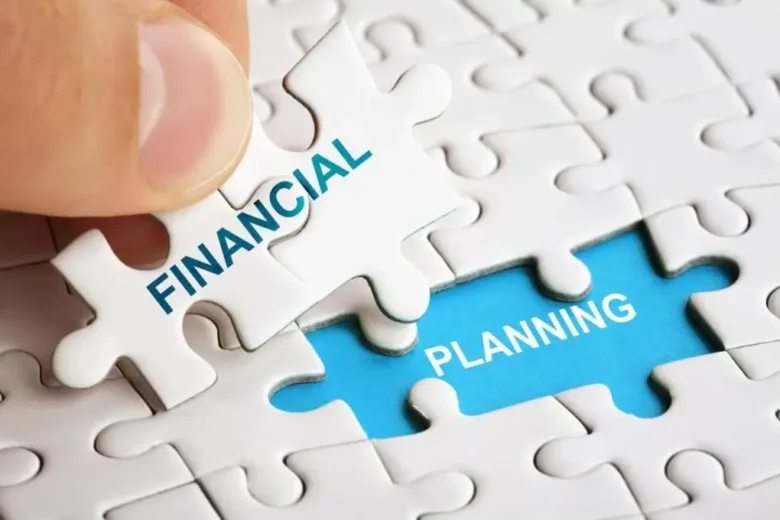In today’s economy, planning your finances isn’t just an option; it is a must, especially for women. Mastering financial planning is important for women because they face unique issues such as the wage gap, longer lifespans, and the potential need to take time off to care for others. It gives women the courage to face the unknowns of life and ensures a stable financial future.
Determine Your Financial Goals:
Setting clear goals is the first step in planning your finances. Women should write down their short- and long-term financial goals, such as buying a house, paying for college, or ensuring they have enough money to retire comfortably. By setting SMART goals (goals that are clear, measurable, achievable, relevant, and have a deadline), you can better organise your financial planning.
How to Create a Budget:
Creating a budget is a way to keep track of money and manage your income and expenses. It helps women keep track of their money and ensure they don’t spend more than they can afford. It also helps them save for future goals. By comparing your monthly income with your expenses, you can see where you can cut or change your expenses, which will help you manage your money better.
Ways to Save Money:
Saving money is one of the best ways to protect your finances. This means that you regularly deposit part of your income, preferably by automatically putting the money into a savings account. Women should try to save in multiple ways, such as short-term savings for current needs and long-term savings for future goals.
How to Invest:
If you want to get rich over time, investing is a must. To make informed decisions, women need to understand different spending options, such as stocks, bonds, mutual funds, and real estate. By starting with small investments and eventually investing larger amounts, your money can grow significantly.
Retirement Planning:
Planning for retirement is important, especially for women, who tend to live longer than men. Putting money into a retirement account like a 401(k) or IRA and understanding how compound interest works are two important things you can do. Regular early retirement planning will help you achieve financial independence and comfort in your later years.
Dealing with Debt:
Properly managing debt is important for maintaining good financial health. Credit card bills and other high-interest debts must be paid off first. Lowering your interest rate or consolidating payments can also help you manage your debts better.
Insurance Supplies:
Insurance is an important part of planning your finances because it protects you from life’s unknowns. Buying health, life, and property insurance is important to protect your finances if something bad happens. Women should regularly review their insurance needs to ensure they have adequate coverage.
Set Up an Emergency Fund:
Having an emergency fund is important for maintaining financial stability because it protects you from sudden financial shocks, such as job loss or medical problems. It’s a good idea to have at least three to six months’ worth of expenses in an account that can be easily withdrawn.
Plan Your Taxes and Get Tax Relief:
Good tax planning can save you a lot of money. Women should learn ways to save on taxes, such as deductions and credits, and consider how their investments will affect their taxes. The advice of a tax expert can help you devise a good tax approach.
Planning Your Estate:
Plan your estate and ensure your personal and business affairs are taken care of so your loved ones have peace of mind. It includes writing a will, setting up trusts, and creating health care guidelines to help you make financial choices if you become incapacitated.
Knowledge about Money:
Learning about money is incredibly powerful. This means understanding money and financial products so women can make informed choices. By gaining financial education through classes, training, and reading, you can learn more about money and become more confident about it.
Empower Women by Making Them Financially Independent:
Financial independence gives women the freedom to make decisions in their lives, allowing them to achieve their personal and business goals. It gives women a sense of self-worth and empowers them to make a positive difference in their communities and economies.
Avoid These Common Money Mistakes:
Some common mistakes people make with their money include not saving for retirement, not figuring out how much insurance they need, and not investing. If you plan your finances in advance, you can avoid these problems and have a secure financial future.
Conclusion:
Smart money management is important for all women who want to have a secure and successful future. Women can achieve financial success by setting clear goals, budgeting wisely, saving hard, investing wisely, planning for retirement, paying off debt, buying insurance, preparing for emergencies, paying taxes, planning estates, and many more goals to achieve financial independence. money.
FAQs:
1. What’s the first thing a woman should do when planning her finances?
Start by reviewing your current financial situation, setting clear short- and long-term goals, and creating a budget that will help you track your income and expenses.
2. How can women save for retirement while meeting their current financial needs?
Putting money into a retirement account should be a priority, even if it’s just a small amount. Meet your current needs by creating a budget and spending your money wisely. As your financial situation improves over time, you can change the amount you put into your retirement savings.
3. What role does investing play in women’s lives? How did she start?
Investing is the best way to get rich and protect your financial future. Start with low-risk investments and learn about the different types of investments. As you gain confidence and knowledge, you can slowly add more diversified investments to your account.
4. Why is it important for women to have an emergency fund? How much should there be?
An emergency fund is a way to save money for unexpected expenses, such as a medical problem or job loss. It should be enough to cover three to six months of living expenses and provide you with adequate coverage.
5. How can women learn more about money so they can make smarter choices about it?
Reading books about money, attending seminars, and seeking advice from financial experts are all great ways to learn about money and improve your financial literacy. This allows you to make better decisions and manage your money better.


